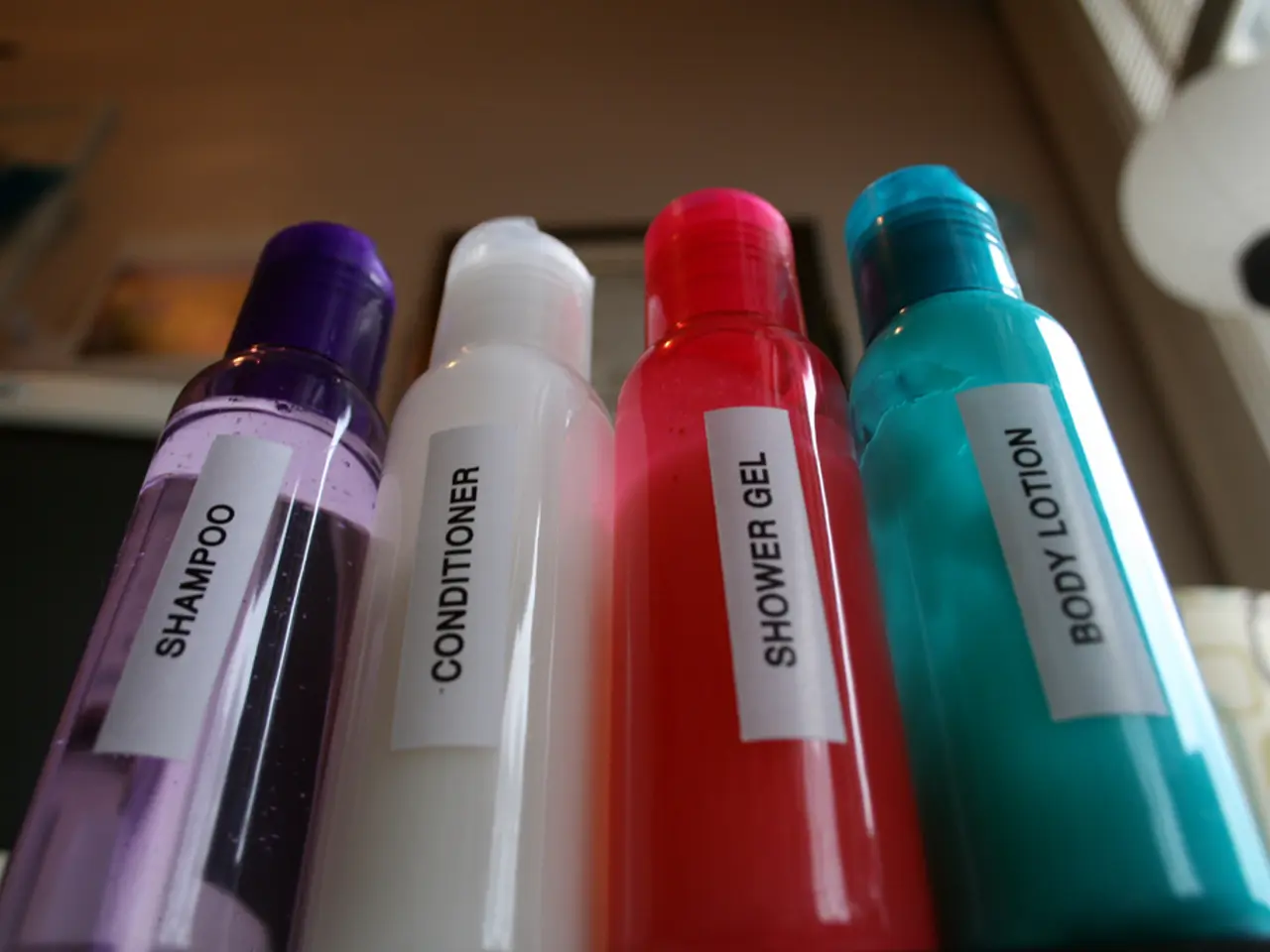Comprehensive Skincare Regimen for Skin Easily Prone to Acne
Maintaining healthy skin, especially for those with sensitive and acne-prone skin, requires a careful approach. Here's a guide to creating a skincare routine that focuses on gentle cleansing, barrier-supporting hydration, targeted acne treatments, and sun protection, while avoiding harsh or irritating ingredients.
Step 1: Gentle Cleansing Twice Daily
Start with a mild, non-comedogenic, fragrance-free cleanser to remove dirt, oil, and makeup without stripping the skin’s moisture barrier. Double cleansing at night with an oil-based cleanser followed by a gentle cleanser can effectively remove sunscreen and buildup without causing irritation.
Step 2: Hydrating and Barrier-Supporting Moisturizer
Use a lightweight, non-comedogenic moisturizer containing ceramides, hyaluronic acid, and squalane to maintain the skin barrier and soothe sensitivity. Fragrance-free, mattifying formulations are preferable for oily, acne-prone skin.
Step 3: Targeted Acne Treatments
Introduce targeted acne treatments gradually to avoid over-irritation. Options include salicylic acid, benzoyl peroxide, adapalene or retinoids, and sulfur. For sensitive skin, consider sulfur as a gentler alternative to benzoyl peroxide.
Step 4: Balancing Toner or Hydrating Mist (Optional)
Use calming ingredients such as Centella asiatica to reduce inflammation without stripping moisture.
Step 5: Broad-Spectrum Sunscreen (SPF 30+), Daily
Choose an oil-free, gel-based, mineral sunscreen formulated for acne-prone skin to protect from UV damage that worsens acne scars and pigmentation without causing breakouts.
Additional Tips
- Use non-comedogenic products exclusively to avoid clogged pores.
- Avoid picking or squeezing pimples to prevent scarring and infection.
- Maintain consistency; acne treatment takes time to show results.
- Manage stress through relaxation techniques to reduce hormone-triggered breakouts.
- For persistent or cystic acne, consult a dermatologist for advanced treatments like chemical peels or laser therapy.
By following this routine, you can prioritize avoiding irritants like harsh cleansers, fragrances, and heavy oils, support the skin barrier, and incorporate dermatologically proven acne actives in a cautious, step-wise approach, ideal for sensitive, acne-prone skin. Building tolerance to active ingredients is important for sensitive skin, and choosing the right product involves paying attention to its formulation and ingredients. A consistent skincare routine that includes soothing ingredients can significantly reduce skin inflammation and irritation.
- To maintain healthy skin, particularly for sensitive and acne-prone skin, opt for a gentle, non-comedogenic, fragrance-free cleanser that doesn't strip the skin's moisture barrier.
- Double cleansing at night, using an oil-based cleanser followed by a gentle cleanser, can effectively remove sunscreen and buildup without causing irritation.
- For effective hydration and barrier-support, use a lightweight, non-comedogenic moisturizer containing ceramides, hyaluronic acid, and squalane.
- When treating acne, be cautious and introduce targeted acne treatments like salicylic acid, benzoyl peroxide, adapalene, retinoids, or sulfur gradually to avoid irritation.
- Calming toners or hydrating mists containing Centella asiatica can reduce inflammation without stripping moisture.
- Choose an oil-free, gel-based, mineral sunscreen formulated for acne-prone skin to protect from UV damage daily.
- Incorporate health-and-wellness practices like fitness-and-exercise and managing stress through relaxation techniques to reduce hormone-triggered breakouts.
- For persistent or cystic acne, seek advice from a dermatologist for advanced treatments like chemical peels or laser therapy.
- Learn about the science behind skincare and choose products with non-comedogenic formulations to avoid clogged pores.
- A consistent skincare routine involving soothing ingredients can significantly reduce skin inflammation and irritation, providing overall women's health benefits.




